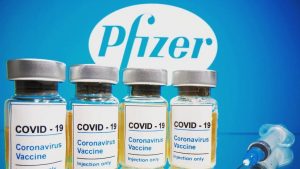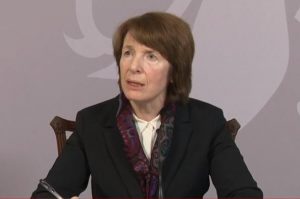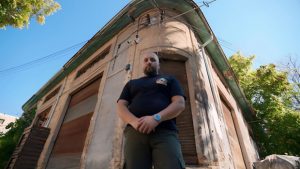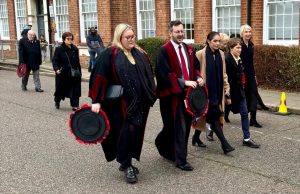UK approves Pfizer/BioNTech Covid-19 Vaccine for use

THE UK has approves the Pfizer & BioNTech Covid-19 vaccine for use, becoming the first country in the world to approve the Pfizer&BioNTech COVID-19 vaccine.
It has been given the go-ahead by the health regulator MHRA and will be rolled out from early next week. Studies have shown the jab is 95% effective and works in all age groups.
The government has secured 40 million doses of the vaccine. Ten million doses are expected in the UK by the end of the year and patients need two each.
Matt Hancock said: “The MHRA – the fiercely independent regulator – has clinically authorised the vaccine for rollout.
“The NHS stands ready to make that happen so from early next week we will start the programme of vaccinating people against COVID-19 here in this country.
“As we know from earlier announcements, this vaccine is effective, the MHRA have approved it as clinically safe and we have a vaccine, so it’s very good news.”
How does the Pfizer & BioNTech vaccine work?
Pfizer and BioTech’s vaccine has been tested on 43,500 people in six countries and no safety concerns have been raised.
It uses a completely experimental approach – that involves injecting part of the virus’s genetic code – in order to train the immune system.
Two doses are needed, three weeks apart, and the pharmaceutical companies say people are protected a week after the second dose.
The vaccine potentially gives immunity 28 days after the first injection.
The Pfizer vaccine needs to be held at minus 70C until the last few hours before it is deployed.
“This vaccine has only been approved because those strict tests”

Dr June Raine
Dr June Raine, from the Medicines and Healthcare products Regulatory Agency, said strict
tests had been complied with.
She made the comments during a briefing with scientists at Downing Street on Wednesday morning.
Dr Raine, chief executive of the MHRA, said: “A really important point relates to the thorough work, scientifically rigorous, methodologically sound, that the agency has done.
“The way of working in a rolling review ensures that our teams of clinicians and scientists are working in parallel to complete all the work according to strict guidelines on safety, effectiveness and quality is complete.
“This vaccine has only been approved because those strict tests have been done and complied with. Everyone can be absolutely confident no corners whatsoever have been cut.”
To who and how will the vaccine be given?
Hancock said there would be “three modes of delivery” of the vaccine.
“The first is hospitals themselves, which of course we’ve got facilities like this,” he said.
“50 hospitals across the country are already set up and waiting to receive the vaccine as soon as it’s approved, so that can now happen.
“Also vaccination centres, which will be big centres where people can go to get vaccinated. They are being set up now.”
The vaccine is expected to be rolled out as early as next Tuesday 8 December.
The vaccine install will be given to care home residents, all those over 80 and frontline health and social works. Then will be filtered down the age groups to all those aged 75 and over, clinically extremely vulnerable individuals, individuals with life-threatening health conditions aged 16-64 and in stages for ages people aged 60-50year.
Dr June Raine, from the Medicines and Healthcare products Regulatory Agency, said strict tests had been complied with.
She made the comments during a briefing with scientists at Downing Street on Wednesday morning.
Dr Raine, chief executive of the MHRA, said: “A really important point relates to the thorough work, scientifically rigorous, methodologically sound, that the agency has done.
“The way of working in a rolling review ensures that our teams of clinicians and scientists are working in parallel to complete all the work according to strict guidelines on safety, effectiveness and quality is complete.
“This vaccine has only been approved because those strict tests have been done and complied with. Everyone can be absolutely confident no corners whatsoever have been cut.”









